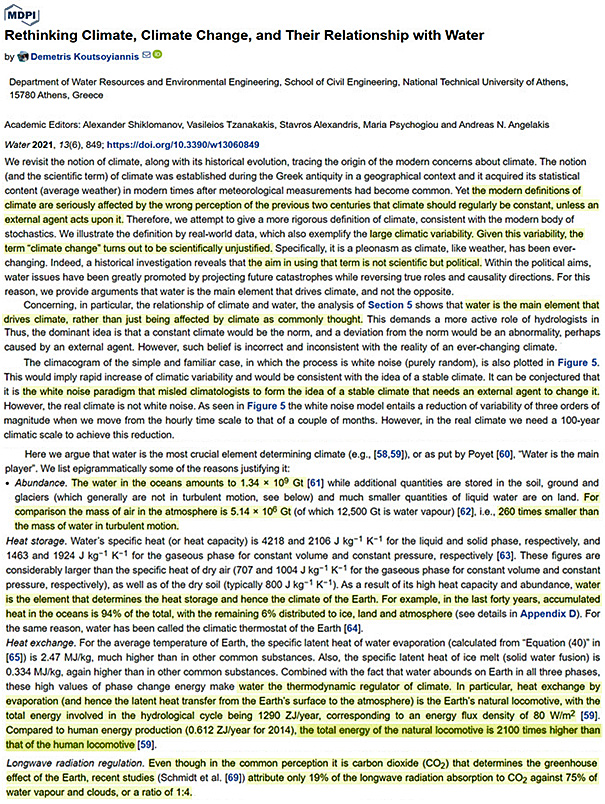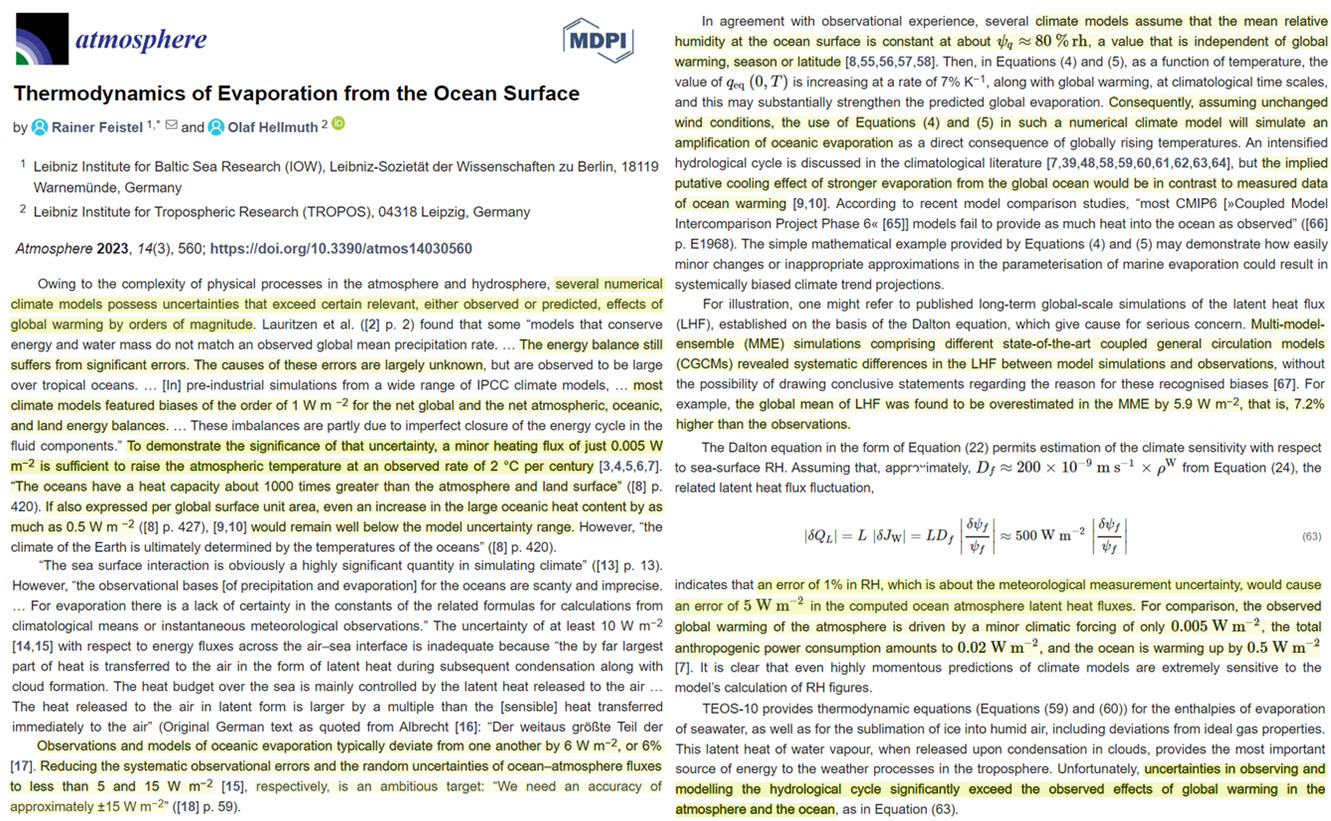Per a new study on the hydrological cycle’s role in climate change, today’s state-of-the-art climate models “assume the mean relative humidity at the ocean surface is constant.” They are also known to “assume unchanged wind conditions.” Even with this imaginary constancy, “uncertainties in modeling the hydrological cycle significantly [orders of magnitude, or more than 100-fold] exceed the observed effects of global warming.”
In a summarizing analysis of the thermodynamics associated with Earth’s hydrological processes (Koutsoyiannis, 2021), we learn that the impact of the natural heat exchange by evaporation, or the latent heat transfer from the ocean to the atmosphere, is approximately 80 W/m²/year, or 1,290 ZJ/year.
Total climate impacts from human greenhouse gas emissions amount to only 0.038 W/m²/year (0.612 ZJ/year in 2014).
Thus, Earth’s “natural locomotive” is about 2,100 times larger than claimed for anthropogenic forcing.
It is therefore clearly evident that “water is the main element that drives climate, rather than just being affected by climate as commonly thought.”

Image Source: Koutsoyiannis, 2021
The below quote selections from a new review paper (Feistel and Hellmuth, 2023) on the thermodynamics of air-sea processes (i.e., evaporation) expand on the extreme nature of this magnitude differential in even more detail.
The ocean’s heat capacity is 1,000 times larger than the atmosphere’s. An ocean heat flux of 0.005 W/m²/year can thus warm air temperatures 2°C/century.
Uncertainty in estimating latent heat flux and relative humidity is 5-6 W/m². This means uncertainty and error are about 1,100 times larger than the identified global warming terms.
The dominance of water in driving climatic processes is so massive that claims we can detect a 0.038 W/m²/year anthropogenic forcing signal amid the orders of magnitude larger background of internal or natural variability, uncertainty, and calculative error is, in a word, absurd.
“[T]he climate of the Earth is ultimately determined by the temperatures of the oceans,” as “the oceans have a heat capacity about 1000 times greater than the atmosphere and land surface.” Because this orders-of-magnitude oceanic dominance, even “a minor heating flux of just 0.005 W/m² is sufficient to raise the atmospheric temperature at an observed rate of 2 °C per century.”
“[A]n error of 1% in RH [relative humidity] … would cause an error of 5 W/m² in the computed ocean atmosphere latent heat fluxes. For comparison, the observed global warming of the atmosphere is driven by a minor climatic forcing of only 0.005 W/m², the total anthropogenic power consumption amounts to 0.02 W/m², and the ocean is warming up by 0.5 W/m².”
“[N]umerical climate models possess uncertainties that exceed certain relevant, either observed or predicted, effects of global warming by orders of magnitude.”
“[T]he global mean of LHF [latent heat flux] was found to be overestimated in the MME [multi-model ensemble] by 5.9 W/m²…”
“Observations and models of oceanic evaporation typically deviate from one another by 6 W/m², or 6%.”
“If also expressed per global surface unit area, even an increase in the large oceanic heat content by as much as 0.5 W/m² would remain well below the model uncertainty range.”






[…] New Study: Climate Models Have Uncertainties, Errors Over 100x Larger Than Claimed Drivers Of Warmin… […]
ALL climate models are ERRORS… from the beginning of the algo to the end.